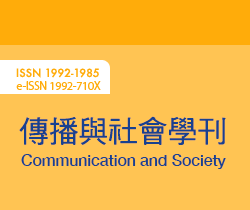 |
| January 2022 |
 |
59 |
|
| 專輯論文Special Issue Articles |
| 議題的力量:由大數據解析2020年台灣總統大選中的議題 |
| The Power of Issues: Big Data Analysis in the 2020 Taiwan Presidential Election |
|
|
|
 |
 (3530)
(3530)
|
| 作者 |
陳憶寧、溫嘉禾、許悅 |
| Author |
Yi-Ning Katherine CHEN, Chia-Ho Ryan WEN, Yue XU |
| 關鍵詞 |
媒體、議題分歧、議題設定、議題融合、台灣總統大選 |
| Keywords |
media, issue divergence, agenda setting, issue convergence, Taiwan presidential election |
| 摘要 |
在議題設定的思考架構下,本研究探索2020年台灣總統大選中的候選人、媒體與選民的重要議題的關聯性,以及不同時期候選人與對手、媒體、民眾的議題之融合與分歧。本研究使用由意藍公司開發的OpView蒐集的公開網路資料進行分析,選擇了雙方激烈辯論的十個議題的所有公開文本,並探究民進黨候選人蔡英文和國民黨候選人韓國瑜的議題發展策略。研究發現不論任何時期,候選人與選民議題高度相關,但未必與媒體議題相關。競選初期,在位者優勢讓蔡英文可以選擇分歧策略,但後期仍採取融合策略。高度政治性的台灣主權相關議題是競選中的關鍵主軸。媒體和候選人集中於香港的反引渡法、假消息及台灣的反滲透法案,數量上遠遠超過了養老金改革、勞工改革和婚姻平權。蔡英文擁有在位者的優勢,採用了忽視韓國瑜的策略,到競選最後一週還是能回到她第一任任內有實質政績的議題。 |
| Abstract |
The purpose of this study is to: (1) explore whether media issues, public issues, and candidate issues are still related in the era of internet campaign communications under the agenda-setting framework and (2) explore how candidates’ issues converge or diverge with opponents, media, and the public during different campaign periods. We examine Spearman’s correlation between the agendas of candidates, media, and the public during the 2020 Taiwan presidential election and also focus on the issue development strategies of the DPP candidate Tsai Ing-wen and the Kuomintang candidate Han Guo-yu. This study takes all the data collected by OpView, which was developed by eLand Company for analysis, and selects all public texts from ten topics that were intensely debated by both sides. The study finds that, during any time of the campaign period, the candidates’ agendas are highly related to the voters’ but not necessarily to the media’s. At the beginning of the election cycle, the incumbent advantage allowed Tsai Ing-wen to choose a divergent strategy; however, in the later stage, her agenda merged with Han Guo-yu’s. Highly political issues related to Taiwan’s sovereignty then became the key axis of the election campaign; the media and candidates both concentrated on Hong Kong’s anti-extradition law movement, fake news, and Taiwan’s anti-infiltration bill—topics that far surpassed pension reform, labor reform, and marriage equality. However, Tsai had the advantage of being the incumbent and adopted the strategy of ignoring Han. By the last week of the campaign, she was able to return to the issue of substantial political achievements during her first term.
陳憶寧,台灣政治大學傳播學院廣告系特聘教授。研究興趣:資通訊傳播科技政策、科學風險與傳播、政治傳播。電郵:kynchen@nccu.edu.tw
溫嘉禾,美國紐約雪城大學紐豪斯學院博士生。研究興趣:公共衛生、健康訊息與介入、醫療求助行為、隱私和資訊安全、計量研究方法。電郵:RyanWen@Alumni.LSE.ac.uk
許悅,台灣科技部專題研究計畫助理。研究興趣:健康傳播、公共衛生政策。電郵:delia89162@gmail.com
本文引用格式:陳憶寧、溫嘉禾、許悅(2022)。〈議題的力量:由大數據解析2020年台灣總統大選中的議題〉。《傳播與社會學刊》,第59期,頁13–45。
Citation of this article: Chen, Y. N. K., Wen, C. H. R., & Xu, Y. (2022). The power of issues: Big data analysis in the 2020 Taiwan presidential election. Communication and Society, 59, 13–45. |
|
|
 |
| No.74 2025 October |
 |
| No.73 2025 July |
 |
| No.72 2025 April |
 |
| No.71 2025 January |
 |
| No.70 2024 October |
|
